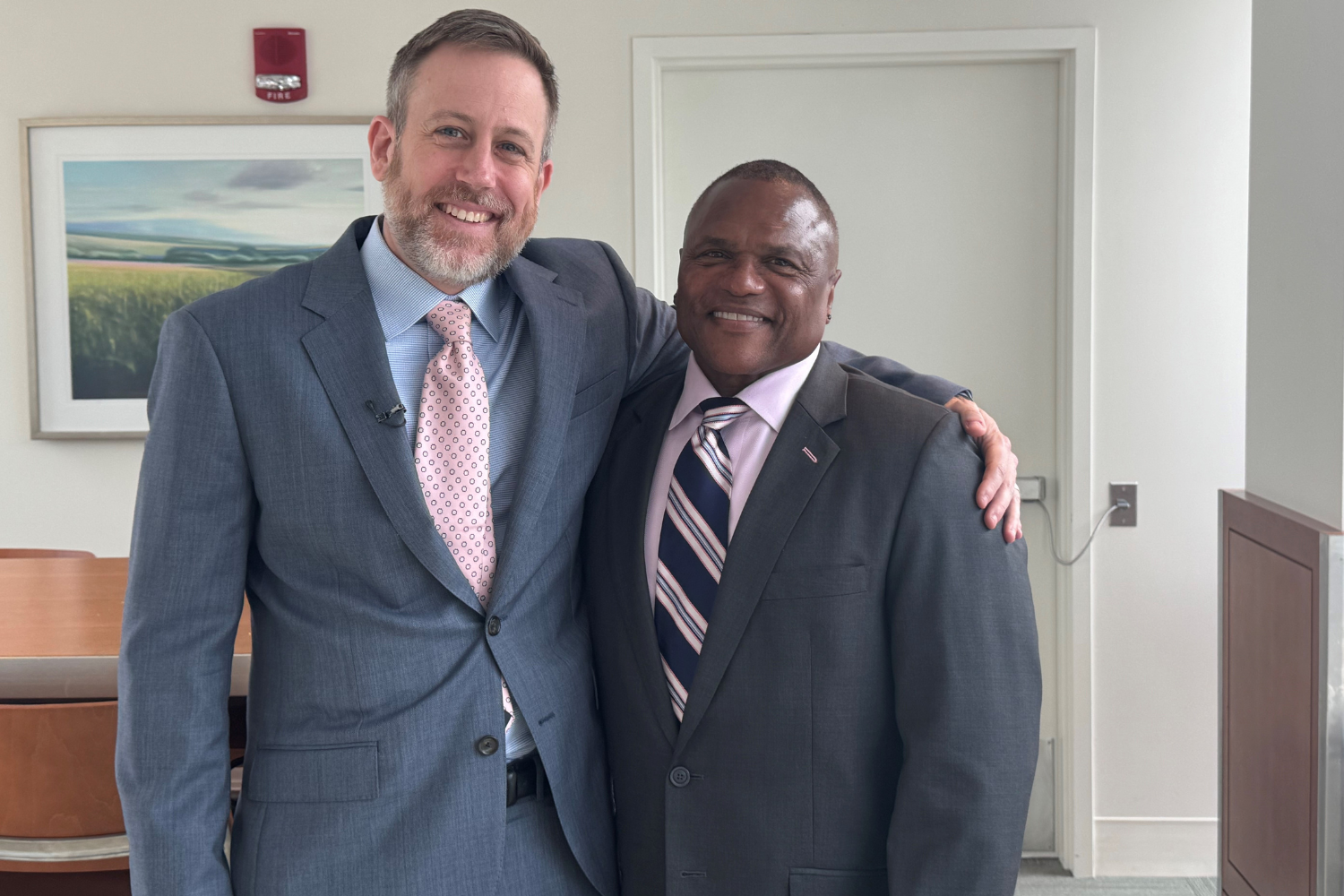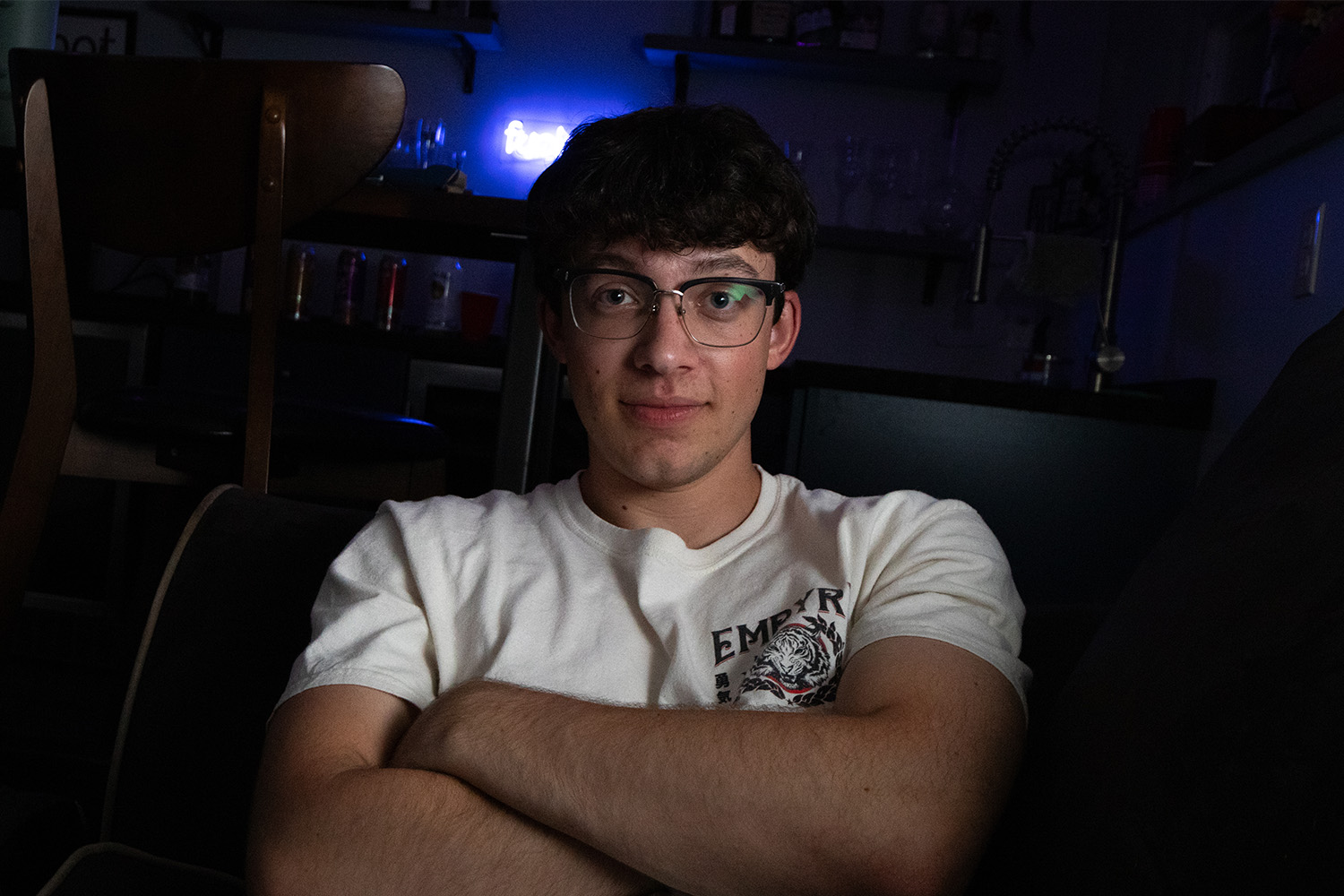Alberto Cifuentes, Jr. is a Ph.D. candidate at the UConn School of Social Work (SSW). He teaches macro social work courses, including Human Oppression and Analysis of Social Welfare Policy.
Describe the topic of your dissertation.
A. My research studies how male sex workers internalize stigma, process stigma, and contradict or counteract it. Stigma is an under-researched area, and male sex work itself is under-studied. I think there can be more done to make sure that stigma research is conducted whether that’s through more community-engaged research or quantitative and qualitative research.
How did you come to focus on this topic?
A. During my graduate work, for my MSW at the UConn School of Social Work, I was studying HIV and STI prevention. I coordinated a “Stop the Stigma” series where I led programming for people who are living with HIV to come and talk about their experiences. I led a conversation about PrEP, which is a pill that you take once daily to reduce the risk of HIV.
I noticed that sex workers were not represented in the HIV prevention literature. They were a high-risk population but they were not really studied. I wanted to fill that gap. I wanted to improve the health outcomes of sex workers because I felt that it was a dereliction of research duty to ignore the impact that stigma was having on the sex work population.
What are some of the issues facing male sex workers?

A. They face this narrative that they all have risky sex, that none of them have safe sex. I think that’s a destructive narrative because it relegates male sex workers to [being perceived as] “vectors of disease,” stereotyped as all having HIV, that they don’t use condoms or PrEP. This false narrative should be challenged in the research.
We don’t typically think of male sex workers as being victims of abuse and violence. I think it’s important to recognize that male sex workers can be subjected to harassment and that male sex workers face issues regarding economics. They are often relegated to the streets, and they don’t have enough aid when it comes to housing and health care. We also believe that male sex workers only engage in their work in isolation and that they don’t engage with other sex workers to help improve their health outcomes. But male sex workers do engage in community work, and I think male sex workers are doing a lot to increase their political participation and involvement.
How are you conducting your research?
A. I’m taking a mixed methods approach. I did a national, Internet-based survey of 250 male sex workers. Most of them were from New York City, but there were also participants from L.A., Chicago, and other cities. I used snowball sampling, which is when people within a network recruit by word of mouth. To recruit for my study, I used Facebook and X primarily, and I posted ads with agencies that provided assistance to male sex workers.
For my qualitative study, I conducted semi-structured interviews that were about an hour in length. I asked questions about how participants experienced stigma. I also asked them about some of the ways they coped with stigma and how they challenged it in their everyday lives. Through Facebook and X, I was able to get 22 participants for that part of the study.
Do you have preliminary findings that you could share?
A. For the survey, I looked at different forms of stigma and the impact they had on substance use outcomes. I found that my hypothesis was correct: that stigma had negative effects on substance use, increasing substance use among male sex workers. There was a direct relationship between them. I also looked at different moderators or protective factors, such as social identity, activist orientation, and social support, and whether those factors had any effects on substance use.
While activist orientation and social support did not have significant effects on substance use, social identity was often a moderating factor. Social identity refers to the strength of their identity being part of a group. When social identity was low, rates of substance use were higher. That was a really interesting finding for me.
For the qualitative study, I found that male sex workers experienced multiple forms of stigma. Most of them experienced some form of discrimination; that was the most pervasive form of stigma among participants.
What else did you learn?
A. Male sex workers use a lot of techniques to negotiate stigma. They used what’s called information control or selective disclosure where they only disclosed that they were sex workers to a select few so that they didn’t have to fear being discriminated against. They also used what’s called ‘reframing the narrative,’ where they framed sex work as legitimate work. They also built community, and that sense of community helped them cope with anxiety, depression, and other mental health issues.
What do you hope to do with these findings?
A. I’m hoping this research will lead to better interventions to help sex workers, male sex workers specifically, and that this will result in better biomedical and behavioral interventions to not only help prevent substance misuse but also help male sex workers cope with and resist the negative effects of stigma. I’m hoping that I can do more community-based participatory research where I can involve male sex workers in their own liberation. They can become co-researchers and be involved in the data collection and analysis, and they can have more of a voice in how the research is conducted.
Once I have my Ph.D., I’m also hoping that we can change policy and decriminalize sex work. Decriminalization of sex work has been shown to increase health outcomes for sex workers in countries like New Zealand. I think that once we advocate for policies that improve the health outcomes of sex workers, we can do a lot to decrease the effects of stigmatization.
What would you say to prospective Ph.D. students about your experience at the School of Social Work?
A. The UConn SSW has a really supportive, nurturing atmosphere. I started off in the program with a lot of insecurities, a lot of doubts and I was in a cohort of one. But my fellow students took me under their wing, and they really helped me feel less of that imposter syndrome that people often get in these programs – like they don’t belong. My classmates and the faculty were helpful and supportive in terms of lessening these feelings of insecurity and doubt. In this environment, I was encouraged to pursue my research interests, even if they were outside the box. Even though no one was doing the research I was doing, I could draw from the skills of the expert faculty and collaborate with others.



